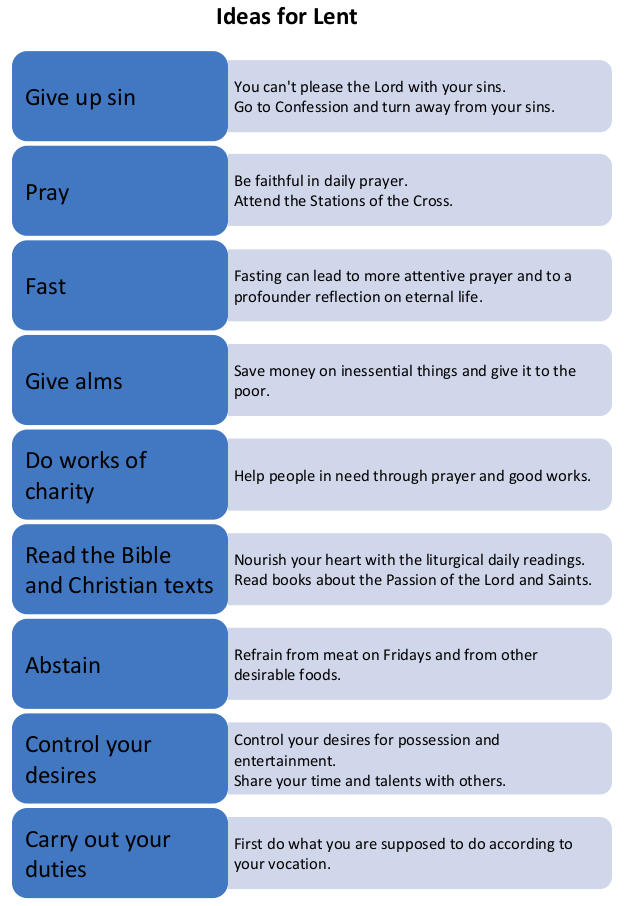Every year we begin Lent with the imposition of ashes on our heads during Mass on Ash Wednesday. The season of Lent lasts 40 days (not counting the Lenten Sundays) and leads us to the celebrations of the Paschal Mystery of the Lord culminating in the Liturgy of the Easter Vigil.
During Lent we are encouraged to observe the main Lenten works such as prayer, penance, self-denial, fasting and almsgiving. Ash Wednesday is a universal day of fasting and abstinence from meat. According to Canon Law (#1252), by abstinence are bound those who have completed their 14th year
and the law of fasting binds the faithful who are between 18 and 60 years old (the obligation ceases with the beginning of the 60th year). On the day of fasting we can have only one meal and two small amounts of food. Fasting is not a kind of diet to keep our bodies healthy, but it has a profound spiritual meaning: we deprive ourselves of food in order to be more open to prayer, to share more in the suffering of those who are striving and to save money to give to the poor. Fasting is a penitential act intended to open our
hearts to God and our neighbours, means of purification and spiritual liberation and a witness of the depth of our faith. Abstinence, like fasting, is avoidance of something that is good in favour of something that is better. It is not a matter of vegetarianism or veganism. Fasting and abstinence are forms of penance in honour the sacrifice that Christ made for our sake on the Cross.

